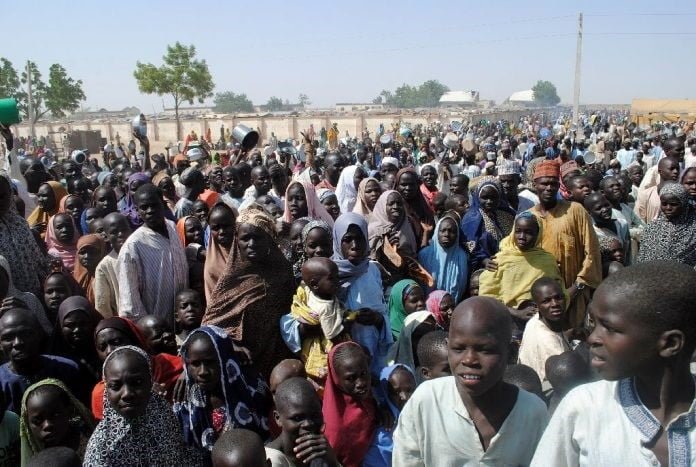Continuing volatility of the naira, in spite of foreign exchange intervention by the Central Bank of Nigeria (CBN) is being compounded by the rising inflation, interest rate and slow economic growth, which pose great consequences for the low and middle income earners in the country if urgent steps are not taken to remedy the situation.
President of the Association of Bureau De Change Operators of Nigeria (ABCON), Alhaji Aminu Gwadabe, who stated this at the weekend in Lagos, maintained that the unfolding scenario raises the risk of stagflation with potentially harmful consequences for the poor in the economy.
He added that already, the global growth is expected to slump from 5.7 per cent in 2021, which is significantly lower than the 4.1 per cent predicted by the International Monetary Fund (IMF) in January 2022.
Gwadabe stressed that to keep the country’s economy going and strong in the face of these challenges, there was the need for improved local production and diversification of the economy from over-dependence on oil and gas.
He said the naira exchanged for N614 to one United States of America dollar at the parallel market during the weekend, adding that dollar bids continues to rise as inflation rose to 11-month high, maintaining that these occurrences were eroding the purchasing power of most households in the country.
“The biggest driver of inflation is the stubborn rise in food inflation. The average price level of the food basket rose by 1.13 per cent to 19.54 per in April 2022. This can be reversed by increased support for agriculture and government policies that support the sector,” he stated.
The ABCON boss said Nigeria’s huge population and the Diaspora market, which attracts an average of $20 billion yearly into the country, could be explored to deepen dollar inflows to the country’s economy maintaining that the dollar receipt points through over 5,000 Bureaux De Change Operators have the potential of deepening dollar inflows and significantly improve the economy.
He said globally BDCs remain one of the channels through which the Diaspora remittance funds come into countries.
Gwadabe, who pointed out that BDCs remain at the center of economic development and have the capacity for the development of the Nigerian economy and deepening the foreign exchange (Forex) market, expressed the belief that the success of BDCs will be boosted by access to multiple streams of forex earnings to deepen the market, keep the naira stable and boost BDCs operations.
Read Also: NPF, INTERPOL synergy leads to recovery of three stolen vehicles in Niger Republic
“Making BDCs one of the major channels through which $20 billion Diaspora remittances enter the economy yearly will give dept to the forex market and boost BDCs operations in the country. Nigerian BDCs operators have also identified with the immense opportunities presented by Diaspora remittances and want to play greater role in attracting more foreign capital inflows into the economy.
He stressed that remittances are known to help poorer recipients meet basic needs, fund cash and non-cash investments, adding: “Finance education fosters new businesses, service debts and essentially, drive economic growth.”
Speaking further, the ABCON boss said although the CBN recently showed greater commitment to curb inflation by raising the Monetary Policy Rate (MPR) by 150 basis points to 13 per cent per annum, strengthening the economic through local production would reverse negative trends in the economy.
He stated that as inflation rate remain higher than interest rates, retaining interest rates on investment would drop and foreign capital inflows would falter, leading to sluggish economic growth.
Gwadabe noted that other advance economies, including that of the United States of America, was also fighting inflation with its interest rate hike.
The United States of America Federal Reserve Bank had maintained its monetary policy tightening stance, raising interest rates by 75 basis points to 1.75 per cent in order to rein in inflation. This is the third rate hike this year and the biggest increase since 1994.
“The rise in United States interest rate will cut capital inflows into Nigeria and other developing markets. United States is the largest source of capital imports into Nigeria in first quarter of 2022 accounting for 5.21 per cent of total capital inflows,” he stated.
Click on The Trumpet and follow us on our Twitter page for more:






